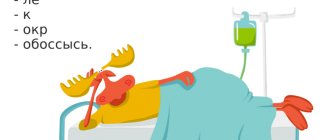Life position is a person’s effective and emotional attitude to all manifestations in his life, determined by external frameworks and internal attitudes. This attitude manifests itself on several levels at once - in actions, thoughts, statements and even inaction at certain moments. Any position implies not only a passive demonstration of one’s attitude, but also an active and effective direction to implement one’s position.
The formation of a life position occurs throughout life, but begins from childhood. It includes features of neuropsychic organization, type of thinking, and psychological trauma. In addition, the immediate environment (especially in childhood) has a direct impact on one’s life position, since close people form values, semantic space, goals and plans.
A person’s life position can be determined by him independently, depending on his plans and necessary achievements. In many cases, the correctly chosen position helps development and faster achievement of goals, but first, for this it is necessary to decide on the most correct and effective one for each specific person and his individual life characteristics.
What is the secret of happiness?
Life position is what influences our subconscious, thoughts, actions, perception of the world. The environment, model of behavior, field of activity, sincerity will depend on it. From the first minute of communication with a person, it is clear what his position in life is and whether he has one at all.
In other words, this is the attitude of the individual to the world around him, which is reflected in his thoughts and actions. There are two main types:
- Passive life position.
- And active.
The first, also called conformist, is aimed at subordination to external circumstances and the surrounding world. Such people, as a rule, are inert and do not show any interest in life. They do not improve themselves, do not make decisions in a difficult situation, it is easier for them to avoid the problem. They don't keep their word, they deceive.
The second helps to transform the factors influencing the individual and situations in his favor. Let's talk about it in more detail.
What is proactivity?
Proactivity means acting now with an awareness of future problems, needs or changes.
Proactivity means taking well-planned actions to achieve goals that give your life and business a boost. This means focusing on what's important, not just what's urgent.
Sounds like a reasonable idea, doesn't it? The problem is that our world is becoming reactive rather than proactive. A reactive person is someone who “Reacts easily to irritation.”
A reactive person is driven by urgency and external influences. Because the sense of urgency often trumps the sense of importance, many of us spend our days stuck in an endless cycle of events:
- New message in Telegram? It's better to answer right away.
- Request for a meeting? I can't say no to this.
- New post on Facebook? Better take a look before it gets lost in the endless stream.
Then, we wonder where our time went.
Features of an active life position
May be:
- Negative.
- And positive.
In the first case, people direct negative energy to commit bad deeds. They deliberately cause harm to others, imposing their opinions and goals on everyone, which bring harm rather than benefit.
A positive life position is characterized by high morality and spirituality of a person. The individual leads a positive lifestyle and rejects evil. An active life position is a guideline that directs a person in the right direction, so that he works for the good of society and strives to benefit people throughout his entire journey.
The truly happy person is the one who gives more than he receives. It is important to understand that nothing in life comes easy, you need to work hard. And for this you need to choose the right path in life, think positively, not waste time on work you don’t like, and develop.
TYPE DESCRIPTIONS
1. I am good - you are good (XX).
A person shows good will in the process of interacting with others and does not ask for anything in return. He gives both what he can give and what he considers useful and pleasant for another. Doesn't like to give ratings to other people. Does not require constant attention and is able to maintain a relationship for many years. In difficult situations, he seeks advice and very rarely requires help. He is confident that if another person is able to help, he will help
However, in order to maintain a good relationship, he may periodically ask for something not very important. Relationships with others are built exclusively on positive emotions. Categorically does not accept “ping pong” “You give me - I give you”
Categorically does not accept “ping pong” “You give me, I give you.”
2. I am good - you are bad (HP).
He is very reserved in communication and controls his emotions well. Often unemotional, but can use emotions as a means to achieve a goal. In communication, he places emphasis on improving the other, his correction. He loves when his words reach their goal and his personal contribution to education remains noticed. Doesn't like to talk a lot, improves his speech. He tries to make the speech as effective as possible, looking for his own key to everyone. Likes to speculate on the topic of debt. If he requires something from another, he directly states that “you must,” while hinting at some of his own special merits and significance. Loves power. Often his actions outwardly seem devoid of common sense, because the internal logic is sometimes very pretentious.
3. I’m bad - you’re good (PH).
Tries to get as much as possible from others, while rarely showing good will and not always giving something in return. He knows that he owes a lot to those around him, but he experiences pleasure from this knowledge, which often has a certain trance-like, mystical hue. Likes to speculate on the topic of love. He does not keep a strict record of the good deeds that he has done for him, but he has a clear list of “good” people who are ready to give something. Systematically sends out small demands based on this list that support the “giving tone.” He is talkative, and in words can move mountains for his partners. Constantly requires attention and can be attached to another for many years, if he has not lost the “tone of giving.” Loves various types of trance experiences and, if possible, builds relationships on them. Likes to give assessments.
4. I am bad - you are bad (PP).
This life position is typical for criminals, but not only. With some people, relationships (business) are built on negative emotions: fear, anxiety, hatred, etc. With other people, a person builds relationships on a hedonistic basis, since together it is easier to achieve satisfaction (sex, gambling, drugs, etc.) .
Never shows good will in relationships. If he sometimes shows “breadth of soul,” he either later begins to regret it, or begins to expect similar actions from others in response. Seriously believes that no one does anything “just for the sake of it.” When communicating with others, he speaks disapprovingly of third parties and does not spare black words. If he approves of someone, he pursues some selfish goals. The more he communicates, the more he finds flaws in other people. Incapable of long-term affection. Tries not to give more than he receives. Keeps in his head or even on paper a strict record of all the “good deeds” that he has done for him.
When and how is it formed?
The foundation of a life position is laid in early childhood. And as the child grows up, its walls either strengthen or weaken. The construction of this framework will depend on the parents and close environment in which the individual grew up. Namely: from heredity, upbringing, family traditions and other things.
But this does not mean that if a bad life experience has been received, the person will not have any or a passive life position, not at all, it can be consciously changed, just like character. So, let’s be clear: the formation of a life position begins from birth. Look at yourself from the outside, if you are not satisfied with life, rethink it, perhaps you are doing something wrong. Try to change yourself.
What it is
The life position is formed thanks to the immediate environment during the first years of life. The features of its development, attitudes, guidelines and needs, as well as ways of responding to situations are transmitted by parents and educators, becoming internalized categories. Subsequently, these embedded parts manifest themselves in all possible sectors of human life, determining both moral life positions and work, personal and even political positions.
However, this does not mean that once formed, a life position remains a static category. It can change under the influence of new knowledge acquired or life experience. In many ways, a person himself can shape its changes through the application of mental and mental efforts, changing his direction and habitual ways of reacting and assessing the situation. By the time psychological maturity is achieved, the basic life position is formed, and if there are no fundamental changes in the personality and external social situation, then it remains key, only slightly adjusted under the influence of situational factors.
There is also a categorization of positions. One of these classifications adheres to the concept that the position itself is formed before the birth of the child, since it is determined by the psychological state of the parents. This does not mean genetic conditioning or actions, but rather the prism of perception. Roughly speaking, a person can evaluate himself as someone good or feel his own inferiority; all external reality is subject to the same basic assessments. Such deeply held beliefs are practically not amenable to subsequent volitional correction. Changes are possible only if conscious efforts are made, often with the help of a psychotherapist, and require more than one year of intense internal work.
Let's talk about morality
A person’s moral life positions characterize his internal spiritual baggage and are based on the values that guide him in life. Morally, an individual develops in the process of life in society, expressed in the ability to consciously build relationships with people, himself, society, and the state.
The formation of moral life positions, of course, will depend on many factors, such as environment, personality, habits, upbringing, family traditions. To form them, you need to develop several qualities:
- You need to learn to live in harmony with yourself.
- Build relationships with adults and peers.
A person’s moral positions form a model of behavior that guides the achievement of success and well-being.
Main stages of personality development
Role conflict - what is it in sociology
Based on the fact that a developed personality is an adult, the German masters of psychoanalysis, Sigmund Freud and Erik Erikson, adhered to age gradation. Each of the psychoanalysts interprets the various periods of these gradations in his own way, but in all explanations it is possible to identify common positions.
Freud believed that all human activity is determined by instincts and recognized only two of them: the life instinct and the death instinct. The psychoanalyst considered sexual instincts to be the most important in personal development.
Freud's stages of development
If we turn to the generally accepted gradation, then human development undergoes changes, rising through the following steps:
- infancy – from birth to 1 year;
- early childhood – from 1 year to 3 years;
- preschooler age – from 3 to 6 years;
- student age – from 6 to 12 years;
- youth – from 12 to 19 years;
- youth – from 20 to 25 years;
- maturity – from 26 to 64 years;
- old age – from 64 years to death.
You can take a closer look at the period from infancy to adolescence. The basis of the psyche in the infancy period is the formation of the proportion: “trust - distrust.” In the first days, the baby needs the care of his mother, through whom he tries to understand whether to trust this world or not. If she strengthens his awareness of trust, then the baby is positive and can calmly withstand the short-term absence of his mother next to him. He perceives everything positively, and the world is predictable for him. If the mother’s care is insufficient or absent altogether, then distrust and fear of the world around her are laid down at a subconscious level.
In early childhood, in parallel with physical development, the ability to walk, run, and perform other techniques independently appears.
Important! At this age, the child tries to start doing everything himself. Parents should carefully provide him with this opportunity.
The formation of such personality traits as self-control and will begins.
The main thing at this moment is not to overprotect the child and allow him to master the stage of formation of his autonomy. Otherwise, character traits such as weakness of will and self-doubt will be inherent.
At preschool age, the most opportune moment comes for the formation of an active life position. It is at this “age of play” that preschoolers begin social interactions with peers. They communicate and play with friends, begin to understand gender differences, and learn to establish relationships with other adults (except parents). During this period, the Super-Ego is formed.
The child can already take responsibility for younger ones and begins to understand the meaning of social restrictions. Tries to become a protector for his mother, younger sister or brother. He enjoys his independence and, on the basis of this, already forms his own goals.
For your information. In fantasies, when choosing games and coming up with your own scenarios for the development of a situation, initiative, independence and creative zest are manifested.
At this point in development, it is important not to impose your ideas and dreams on the child. Perhaps, timely noticed and tactfully supported natural inclinations will successfully develop into the development of certain abilities
School age allows you to show a desire to understand the external universe and relegate your own mental experiences to the background.
The child tries to learn everything that is important in society. This moment also continues to contribute to the formation of AFP
Main! This is a period of instilling discipline and setting tasks for independent decisions. At this age, there is an urgent need to learn and a craving for creativity. There is a need for support from adults.
Youth is a significant stage of one’s own identity and self-determination. This is a search for one’s place in life, a reassessment of values. The transition period in the psyche can lead to the identification of all the mistakes made during upbringing at an earlier age. This is a dangerous moment when establishing an active social position.
Carefully! Even correctly laid down active life views can be refracted as a result of negative self-identification. At the peak of this, deviant behavior is possible
The task of parents, schools and the public is to carry out the necessary correction to direct mental energy in the right direction
At the peak of this, deviant behavior is possible. The task of parents, schools and the public is to carry out the necessary correction to direct mental energy in the right direction.
Example of deviation direction
How to decide on the best life position?
You need to analyze your life. Start with habits, reconsider values and priorities. Change your thinking. Here are examples of life positions:
- Helping people. By helping, a person benefits not only others, but also himself, because he will certainly be thanked with a kind word and rewarded with a blessing. And this is the highest reward.
- Self improvement. Also, one of the best positions in life will bring stunning success, lead to achieving your goal, and the result of your work will be appreciated by others. Don’t be idle, read books, articles, attend trainings, development courses, play sports, go to the theater and exhibitions. It is necessary to constantly develop.
- Family and children. If you have chosen this life position for yourself, then you are wise and smart. After all, this is our main reassignment in life. Work hard, surround your children with love and care, help them realize themselves, make family members happy. This is the highest achievement.
Only you can decide your best position in life. The main thing is to never give up, move forward, and don’t lose heart. Understand that worries, depression, fears and bad mood will not correct the situation, but will only worsen it. Spread your wings, take off, dream and strive to achieve your goals.
Goals to avoid shame and pain
A happy person is called accomplished and successful. No one will call a loser happy - success is a component of happiness. Almost everyone remembers Ostrovsky’s famous phrase from “How I Became Tempered” about how to live my life. The end of the quote is especially striking: “So that it doesn’t hurt excruciatingly...” So that at the end of your life you don’t feel pain and shame for wasted time, you need to set goals for yourself today.
To consider life successful, a person must achieve 50 of the most important life goals in old age. Summing up his life, a person compares what he dreamed of with what he achieved. But it happens that over the years it is difficult to remember many of your desires and goals, so it is difficult to make comparisons
This is why it is so important to write 50 most important goals in life on a piece of paper and periodically re-read the list
Another important aspect is to try to write it down. This means that your goals must meet five important criteria: specific, measurable, relevant, achievable, and time-bound.
How to do it?
So, let’s figure out where to start in order to develop an active life position:
- As mentioned above, learn to set goals. Do not set impossible tasks; the goal should be specific, realistically achievable and in a short time. It’s better to move towards your big dream in small steps.
- You need to get rid of bad habits. This is not only smoking and alcohol, this can include aimless pastime. Don't spend hours playing computer games, on social networks, and so on. Spend your weekend usefully, visit museums and exhibitions.
- Read more useful information.
- Learn time management. Technology will help you organize your time correctly and use it more efficiently.
- Don't close yourself off from the outside world. Get to know it, open up to new things. Change your image, travel. Show interest in unknown forms of art, for example.
- Don't be afraid to take risks. Never doubt the implementation of ideas. Don't stop halfway.
- Leave negative memories behind, learn from experience and don’t look back at the past.
- Surround yourself only with positive people, adopt their knowledge.
To change your life for the better, you need to take action. You say, it’s easy to talk. But again, sitting back, discussing unnecessary things, simply doing nothing is not an option, nothing will happen. Start small, learn to think positively, and, slowly overcoming small obstacles, you will move towards your goal, your dream.
The following types of communication are distinguished:
1. “Mask contact” - formal communication, when there is no desire to understand and take into account the personality characteristics of the interlocutor, standard phrases, familiar masks of politeness, masks of inaccessibility are used. 2. Primitive communication, when they evaluate another person as a necessary or interfering object: if necessary, then they actively come into contact, if it interferes, they will push away or aggressive rude remarks will follow. 3. Formal-role communication, for example, when communicating between a doctor and a patient, both the content and means of communication are regulated, and instead of knowing the personality of the interlocutor, each of them makes do with knowledge of the social role of the interlocutor. 4. Business communication, when the personality, character, age, and mood of the interlocutor are taken into account, but the interests of the business are more significant than possible personal differences. 5. Spiritual, interpersonal communication (for example, a friendly conversation), when you can touch on any topic and do not necessarily resort to words, a friend will understand you by facial expression, movements, intonation. Such communication is possible when each participant has an image of the interlocutor, knows his personality, and can anticipate his reactions, interests, beliefs, and attitudes. When starting a conversation, you clarify your “model” of your interlocutor, make the necessary adjustments to it, but at the same time you give your interlocutor information about yourself so that he can “model” you correctly. When communicating, you unconsciously (or consciously) emphasize certain aspects of your personality (“self-presentation”) so that your interlocutor has a certain image of you. 6. Manipulative communication is aimed at extracting benefits from the interlocutor, using various techniques (flattery, intimidation, “showing off”, deception, demonstrations of kindness, etc.), depending on the personality characteristics of the interlocutor. 7. Secular communication - the essence of secular communication is its non-objectivity, i.e. people say not what they think, but what is supposed to be said in such cases; This communication is closed, therefore people’s points of view on this or that issue have no meaning and do not determine the nature of communications. Code of secular communication: 1) politeness, tact - “respect the interests of the other”; 2) approval, agreement - “do not blame the other,” “avoid objections”; 3) sympathy - “be friendly, friendly.”
Sample list of 50 goals
Spiritual self-improvement:
- Read the collected works of J. London.
- Complete English courses.
- Forgive grievances against parents and friends.
- Stop being jealous.
- Increase personal efficiency by 1.5 times.
- Get rid of laziness and procrastination.
- Write at least 1000 characters daily for your unfinished novel (personal blog).
- Make peace with your sister (husband, mother, father).
- Start writing a personal diary every day.
- Attend church at least once a month.
Physical self-improvement:
- Go to the gym 3 times a week.
- Go to the sauna and pool weekly.
- Do a set of exercises every morning;
- Every evening, take a walk for at least half an hour at a brisk pace.
- Completely abandon the list of harmful products.
- Once a quarter, go on a three-day cleansing fast.
- In three months I will learn to do the splits.
- In winter, go on a ski trip to the forest with your grandson (son, daughter, nephew).
- Lose 4 kilograms.
- Douse yourself with cold water in the morning.
Financial goals:
- Increase your monthly income to 100,000 rubles.
- Raise the TIC of your website (blog) to 30 by the end of this year.
- Go to the level of receiving passive income.
- Learn to play on the stock exchange.
- Learn to make custom websites yourself.
- Repay your bank loan early.
- Entrust all housework to automatic machines in order to save time for earning money.
- Save on pointless and harmful things: cigarettes, alcohol, sweets, chips, crackers.
- Purchase all products from wholesale stores, except perishable ones.
- Buy a summer house for growing fresh organic products.
Charity:
- Contribute 10% of profits to the orphanage every month for gifts for children.
- Organize a New Year's performance with gifts for orphans using the efforts of a local theater - finance it.
- Do not pass by those asking for alms - be sure to give alms.
- Help a homeless animal shelter by donating money to feed the dogs.
- For the New Year, give all the kids at the entrance a small present.
- On Elderly Day, give all pensioners a set of groceries.
- Buy a computer for a large family.
- Give unnecessary things to those in need.
- Build a children's playground in the yard.
- Help the financially talented girl Tanya go to the “Light Up Your Star” competition in Moscow.
Instructions
Now you have to read twelve unfinished statements. For each statement, choose one of the three options provided. Place the letter of your choice next to the statement number on your answer form. Take your time with your answer. Think carefully about the meaning of what is written. Provide some typical real-life examples.
The person whose behavioral characteristics you are to evaluate: _______________________ (fill in as necessary)
Examples
Examples will help you understand in more detail and finally understand the main types of life positions. Thus, an active life position with a positive orientation is expressed in one’s own high self-esteem; such a person is happy with the place he occupies and knows how to appreciate what is happening in his life. He can be passionate about many matters concerning him and those around him. These are active participants in actions for peace and the fight against poverty, volunteers and simply caring people. They are the ones who stop to help a crying child or someone who has fallen on the street, and at the same time receive sincere pleasure from their actions.
The radical opposite is the passive negative position. In this case, a person may evaluate himself as a victim or a loser, and perceive the world around him as hostile, stupid, and degrading. Life decisions are not made - people resign themselves to the fact that they are fired, offended, deceived and blame everything on the injustice of fate. As a rule, they do not have their own ideas to improve the situation, and if they do, they are not going to implement them.
A passive positive attitude is quite common, especially in good economic and social conditions. People are able to appreciate what they have, maintain traditions, strengthen existing achievements, but not make adjustments. Having all the makings, such a person will not quit his low-paying, habitual job just because he has enough for everything, and change requires energy. They are subject to mass thoughts - they vote like the majority, listen to the same music and do not argue. At the same time, the level of satisfaction is quite high, especially if changes and troubles do not affect them personally.
An active position with a negative orientation represents opposition to society. These could be protest rallies, defending one’s position through quarrels and fights.
Oppositions, anarchists, criminals are prominent representatives of people with similar internal foundations. Verbal aggression and constant complaints about what is happening, nitpicking over trifles and inflated demands on society ultimately make a person an antisocial person.
To be fair, it is worth noting that there are no pure types of positions; we can only talk about the predominance of one of them. Depending on the situation, a person can react in different ways and this is the best position when flexibility is possible. The situation when a person reacts in a typical way throughout his life, without focusing on his own state and the real state of affairs, is the most negative, since it leads to personal degradation.
We are on Telegram! Subscribe and be the first to know about new publications!
You may also be interested
.
How to solve a problem
The code of business communication is different
1) the principle of cooperation - “your contribution should be such as is required by the jointly accepted direction of the conversation”; 2) the principle of sufficiency of information - “say no more and no less than is required at the moment”; 3) the principle of information quality - “don’t lie”; 4) the principle of purposefulness - “don’t deviate from the topic! find a solution”; 5) “express your thoughts clearly and convincingly for your interlocutor”; 6) “be able to listen and understand someone else’s thoughts”; 7) “be able to take into account the individual characteristics of your interlocutor for the sake of the interests of the matter.”
If one interlocutor is guided by the principle of “politeness”, and the other by the principle of cooperation, they can end up in awkward, ineffective communication. Therefore, the rules of communication must be agreed upon and followed by both participants.
Tactics and techniques of business conversation require a special separate discussion.
Processing the results
Compare the subject's answers with the key
KEY
XX 1a 2c 3c 4c 5c 6b 7c 8a 9a 10c 11c 12a
HP 1b 2c 3b 4a 5b 6a 7b 8a 9b 10b 11b 12b
PH 1c 2b 3c 4b 5b 6b 7a 8b 9c 10a 11b 12c
PP 1b 2a 3a 4b 5a 6c 7c 8c 9b 10c 11a 12c
One point is given for each match. Please note that one answer can generate two points at once: for example, for 1b, a tick will be placed in both the HP and PP scales. The maximum possible number of points for one type is 12. The type of life position with the highest score is recognized as the leading one. If the difference between first and second place exceeds three, then we can talk about a pronounced type.










